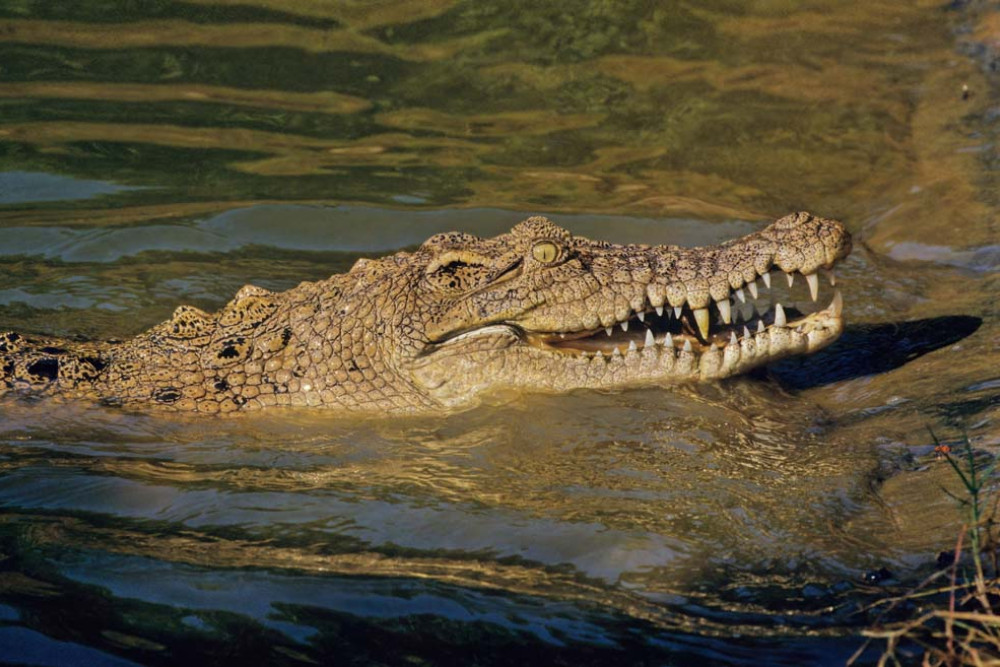Community & Business
14 September, 2024
Crackdown on feeding crocs
NEW offences and increased fines have been brought in by the State Government to crack down on feeding and interfering with crocodiles.

Two new offences have been introduced making it unlawful to unintentionally feed a crocodile by discarding food and remaining in close proximity to a crocodile.
Discarding food, including fish frames, scraps and bait, in a way that may attract crocodiles to a public place such as a boat ramp, jetty, pontoon or camping area can now result in an on-the-spot fine of $483 or a maximum court-imposed fine of $6,452.
Knowingly remaining within close proximity to a crocodile that is on, or partly on, land can now result in an on-the-spot fine of $806 or a maximum court-imposed fine of $16,130.
This offence complements the existing “disturbing” offence which prevents people from approaching or pursuing a crocodile or driving a boat or vehicle within 10m of it.
Conservation officers now also have the power to direct people to move away from a crocodile to avoid any potential human-crocodile interactions.
The government has also significantly increased penalties for existing offences which aim to deter people from engaging in behaviours that pose a serious risk to public safety and animal conservation.
The on-the-spot fine for deliberately disturbing or feeding crocodiles has increased from $483 to $2580, with the maximum court-imposed fine increasing from $6452 to $26,615.
The on-the-spot fine for interfering with a crocodile trap has increased from $645 to $2580, with the maximum court-imposed fine increasing from $19,356 to $26,615.
But State Member for Hill Shane Knuth, who introduced the KAP’s Crocodile Control, Conservation, and Safety Bill 2024 into Parliament last month, slammed the new offences and fines as “nothing more than a band-aid fix”.
“The State Government has failed to manage the crocodile crisis for over a decade, and now it’s completely out of control,” he said.
“Ask anyone who regularly fishes or uses our waterways - they’ll tell you the crocodile population has exploded. “This is a Northern Queensland issue, and it should be managed locally, not from over 1,800 km away in an ivory tower.”


